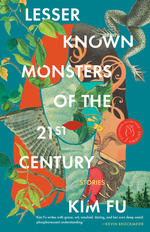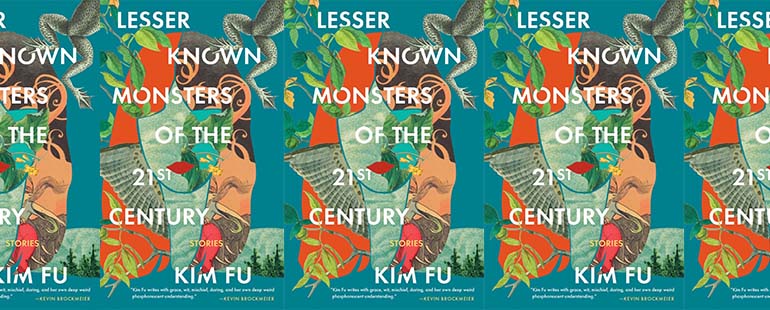
He said, “Don’t bother me, I’m writing.” The kid said, “No, you’re not. I had a mentor during my MFA who said he was lying on the sofa in his office, and one of his kids came in. One of the great pleasures of writing is still being able to create a whole world that you can choose to inhabit and hang the lights just so. There’s a terrible reckoning that happens to children at a certain age, where they’re like, “Why aren’t my toys fun anymore? Why can’t I enter this world anymore?” As a writer, you have a tiny crack in reality that takes you back to that place.

Kim Fu: One of the best things about being a writer is being able to slip into fantasy in the way that children do when they play pretend. How does inhabiting that weird little kid inform your writing life? You said the weird little kid you used to be would want to watch. The Rumpus: In an interview with Room Magazine, you discussed your inspiration for “Liddy, First to Fly” and recalled that a friend had to extract a piece of work glove from under their skin, and that the weird little kid inside them was excited about performing surgery on their own hand. I had the joy of speaking with Fu via Zoom, in a conversation offering keen insights into the craft of the short story, compassion for artists who are struggling to write in these strange times, and a call to celebrate the pleasures of the writing process, regardless of external goalposts. Fu’s writing has appeared in Granta, the Atlantic, the New York Times, Hazlitt, and the TLS. Her second novel, The Lost Girls of Camp Forevermore, was a finalist for the Washington State Book Award and the OLA Evergreen Award. This is an incredible collection, one with sweeping variety that is unified by a singular vision of what it means to be human.įu is the author of For Today I Am a Boy, winner of the Edmund White Award for Debut Fiction, finalist for the PEN/Hemingway Award, and a New York Times Book Review Editor’s Choice.



Fu notes that she set out to inhabit speculative scenarios without a wink to metaphor, and she does so with breathtaking skill as ankles sprout wings, the entire world population loses its sense of taste, a married couple repeatedly kill each other before coming back to life through 3D printing, and a vendor sells cubes that can fast-forward or rewind through an organism’s life cycle. Her worlds are deeply grounded in the realities of this strange century and of living in human bodies coping with the joys and pains of everyday life, even as technological advancements attempt to alter and improve the human experience. Kim Fu’s fourth book and first short story collection, Lesser Known Monsters of the 21st Century, is truly a marvel.


 0 kommentar(er)
0 kommentar(er)
